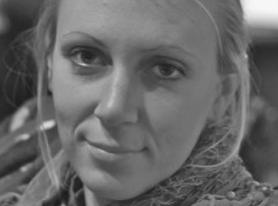
May 2013
Jessica Buchanan, an American aid worker taken hostage by pirates in Somalia in 2011, as spoken publically for the first time about her incident.
Buchanan, held for 93 days in 2011, was eventually rescued in a Navy SEAL raid. The 32 year old American was stationed in the north of the country, which is relatively safe compared to the war-torn south. But she ventured south on a trip in October and was kidnapped while trying to return to the north.
Buchanan and a Danish worker, Poul Hagen, were surrounded by assault-rifle wielding pirates, who had been tipped off by the aid worker’s driver.
Speaking on 60 Minutes, Buchanan said, “I figured they were going to rape me and then kill me. And I just keep thinking, ‘This can’t be the end of my life. I am only 32 years old. I haven’t had any children yet.’”
“I see a small child in the back of the Land Cruiser with an AK-47, draped in ammunition, and I think the irony of why I came to Africa in the first place, and here I have a child involved in my kidnapping, it’s just unbelievable.”
She was held for three months, while her captors held out for the $45 million ransom they demanded. Buchanan was not held in good condition; although she wasn’t physically abused, pre-existing medical condition eventually resulted in a kidney infection.
Sleeping in terrible conditions and eating barely a meal a day, Buchanan’s health became a big concern. She said she was only kept alive because she was worthless dead, and that overall they “treated us like animals. To be so sick that, you know, you’re vomiting behind bushes. And you can’t walk straight, and you’re laying in the fetal position on the ground under a tree. And they don’t even, they don’t care.”
As her health deteriorated further, the United States decided to take matters into their own hands. In January of 2012, a Navy SEAL team stormed the compound where she was held and rescued her. All nine Somali captors were killed, but Gagen and Buchanan emerged unscathed.
“I hear my name,” said Buchanan as she recounted the events of that night. “But it’s not a Somali accent, it’s an American accent. And I can’t compute. Like I can’t understand that somebody with an American accent knows my name.”
Once one of the soldiers handed her an American flag, she said she started to cry. “At that point in time I have never in my life been so proud and so very happy to be an American.”